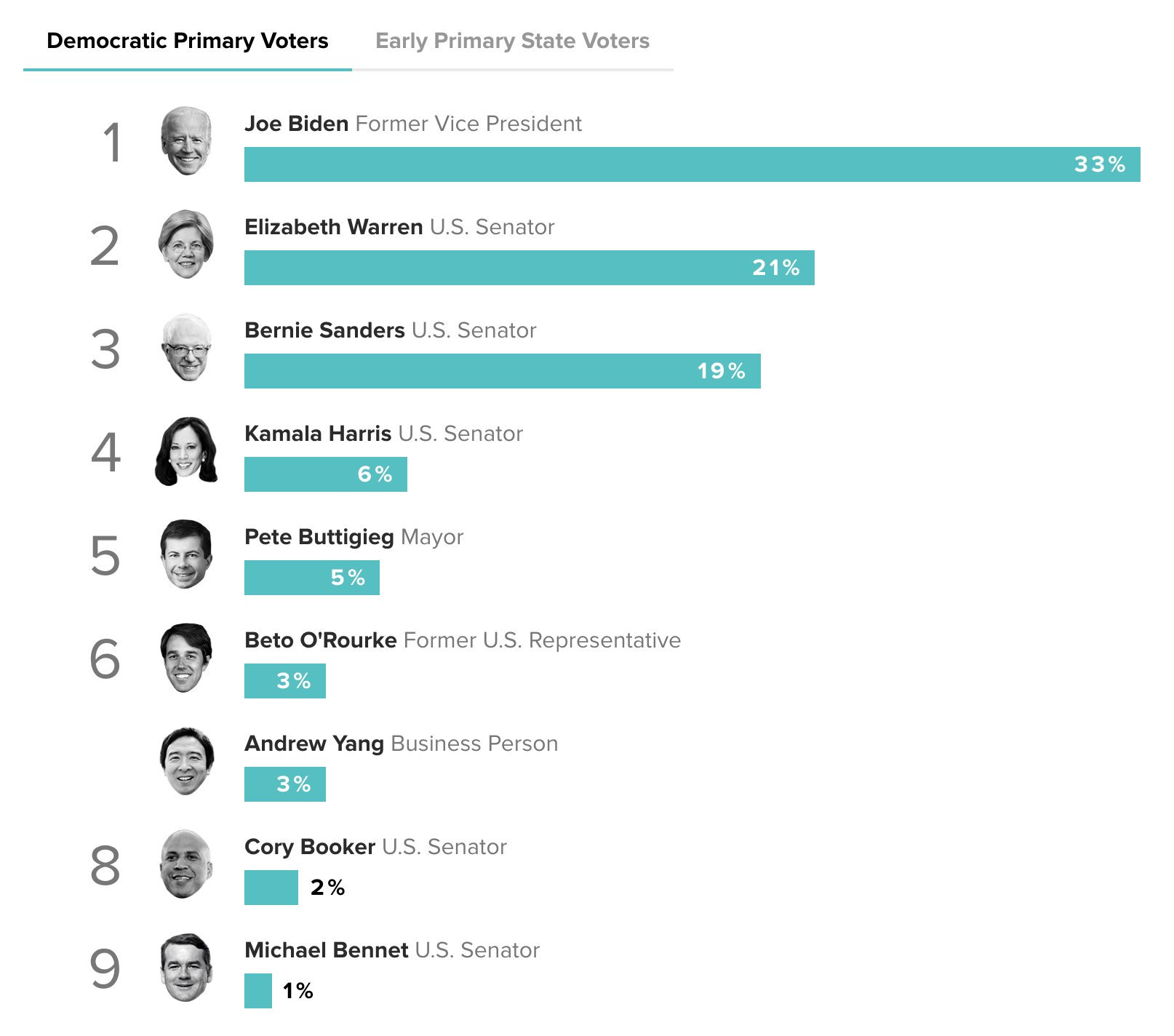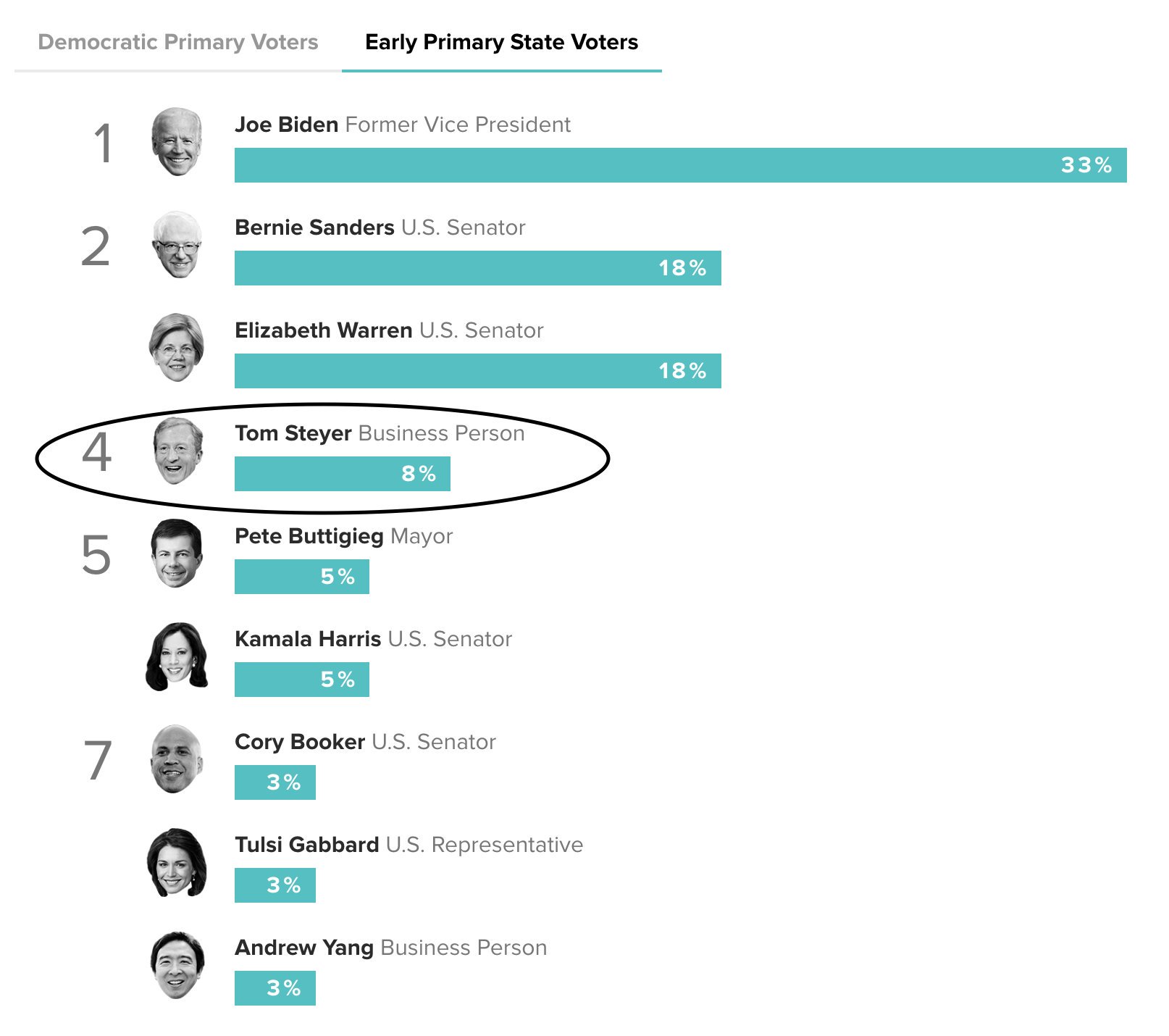Epistemic status: speculative
Andrew Yang understands AI X-risk. Tom Steyer has spent $7 million on adds in early primary states, and it has had a big effect:


If a candidate gets more than 15% of the vote in Iowa (in any given caucus), they get delegates. Doing that consistently in many caucuses would be an important milestone for outsider-candidates. And I'm probably biased because I think many of his policies are correct, but I think that if Andrew Yang just becomes mainstream, and accepted by some "sensible people" after some early primaries, there's a decent chance he would win the primary. (And I think he has at least a 50% chance of beating Trump). It also seems surprisingly easy to have an outsize influence in the money-in-politics landscape. Peter Thiel's early investment in Trump looks brilliant today (at accomplishing the terrible goal of installing a protectionist).
From an AI policy standpoint, having the leader of the free world on board would be big. This opportunity is potentially one that makes AI policy money constrained rather than talent constrained for the moment.

This is naive. The low amount of money in politics is presumably an equilibrium outcome, and not because everyone has failed to consider the option of buying elections. And the reasonable conclusion is that Thiel got lucky, given how close the election was, not that he single-handedly caused Trump's victory.
Yes, it doesn't by itself--my point was only meant as a counterargument to your claim that the efficient market hypothesis precluded the possibility of political donations being a good investment.